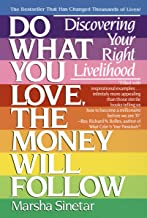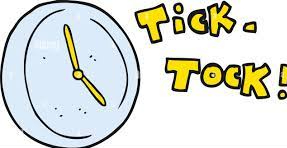When we finally decide to spend our time, energy, and creativity on our interests, things happen!
Pennie Wood
My statement above is a reality that I have become acutely aware of in recent years, but the concept was planted into my being decades ago (more explanation about this later in the article).
We live and function to the beat of the twenty-four-hour clock. Commonly, we divide the twenty-four hours into three portions: 8 hours to sleep, 8 hours to work at a job, and the remaining 8 hours to perform discretionary activities.
I acknowledge that some folks tweak the three portions of time to fit their lifestyles more comfortably. For example, some might work at a job four, ten-hour days, leaving less discretionary time on those evenings, but opening a whole other day in the week. Some work a part-time schedule (less than 40 hours per week) which creates even more discretionary time. Recently, many people adapted to working at home due to the Covid pandemic, and this created a blend of work/discretionary activities during two of the 8-hour portions. In other words, one might hop on a Zoom meeting first thing in the morning, take a break to exercise, hop back on to computer work, dash out to the store, hop back on to the computer work, start some dinner, back on to computer work, get the kids to bed, walk the dog, then back to the computer for some evening emails…you get the idea.
But, no matter how we spread our sleep, work, and other activities over the twenty-four-hour-time period, we have a finite amount of time. It is impossible to create more than twenty-four hours per cycle! So, the question becomes: how do I want to use my 3, time portions in a way that I can work to pay my bills, take care of my chores and personal needs, have healthy personal relationships with friends and family, and feel happy?
Imbalances can easily occur when it comes to “spending” our time, energy, and creativity. I have experienced this, and I have carefully observed and interacted with individuals who have felt imbalances.
If we are spending more than 8 hours per day working at a job, the sleep and discretionary time blocks get shorted. We might bargain with ourselves and others about “catching up.” We want to be successful at our jobs and demonstrate our commitment to others (especially the boss). We desire promotions and pay raises because that will make our lives better, right? But, as the months and years pass by, a frustration builds as we realize that something isn’t in balance.
If we do not allow ourselves to get the appropriate amount of sleep because we’re taking away from sleep time to do work or discretionary activities, eventually our health may suffer. As our health declines, we might have diminished energy, therefore, it takes longer to complete tasks which wastes more of our precious time!
Out of the 3, time blocks, I have both experienced and observed others struggle the most with work.
 In the late 1980’s I read a book called, “Do What You Love, The Money Will Follow,” by Marsha Sinetar. (Disclaimer! I neither know Marsha Sinetar, nor have any financial interest regarding her book sales. It’s simply a book that made a huge impact on me.)
In the late 1980’s I read a book called, “Do What You Love, The Money Will Follow,” by Marsha Sinetar. (Disclaimer! I neither know Marsha Sinetar, nor have any financial interest regarding her book sales. It’s simply a book that made a huge impact on me.)
Marsha Sinetar, an organizational psychologist, asserts in her book that people are often mis-matched to their jobs. In other words, individual personalities are not healthy matches for many jobs. The author personally experienced this concept. She shares in the book, “…I was afraid to cross uncharted, unconventional waters to get to a more desirable place in life, afraid that—when truth be told—I would not have the requisite strength and competence to accomplish what I so dearly wanted…”(she did not trust herself to do something entirely new, and she was afraid to leave her job with regular pay and benefits).
She describes how many of us fight the “Big-R” (resistance!) This inner voice speaks to us and throws up all kinds of reasons we will likely fail if we try switching careers. How will I get into the new career? Do I even deserve it? Will my family think I’m crazy? Where will I get money to pay my bills? I could end up homeless!
The author further explains that some folks can successfully work past the Big-R, but others may need to seek assistance with a counselor or personal coach who can help individuals understand that information they have been saving in their “mental scrapbook” holds them back from doing work they really want to do—what they are passionate and excited about!
Marsha Sinetar then explains that if individuals successfully work past childhood trauma, oppressive parenting, etc., beautiful matches can be made between unique personalities with special skill sets and talents to new work. New work may mean starting a business or working for an established business provided individuals can use their time, energy, and creativity in a way that is thrilling.
The next step, after finding work that we truly love, is improved health! We actually generate more energy to do what we love, and we get more done! We stop hating Monday mornings and living for Friday afternoons. We sleep better. With less stress, our immune systems perform better. We experience personal growth as we get more in touch with our authentic selves.
Organizational psychologist Harry Levinson says “people suffering burn-out have identifiable characteristics: 1) chronic fatigue, 2) anger at those making demands, 3) self-criticism for putting up with the demands, 4) cynicism, negativity and irritability, 5) a sense of being besieged, and 6) hair-trigger display of emotions…” Know anybody like this?
Where will the money come from if I make a big change? The author writes about how when we make a change with intention, the universe responds. I interpret this as meaning that when we place ourselves in another arena, doing the work we love, we will begin to meet people with similar interests or demands for our work/product. As we meet new people, we begin to travel down a new trail where we find gifts such as new ideas, support people, introductions to other people in our new arena, discoveries of materials and technology we hadn’t previously known about. I’ve developed my own saying, “When we finally decide to spend our time, energy, and creativity on our interests, things happen!” This statement results from my personal experience.
The author spends a good deal of time explaining that the money may not immediately follow the change. It may take months or years for income to follow our passionate work. She advises taking steps to minimize the financial sting during transition. Perhaps it’s time to downsize the home, get a less expensive car, eat in restaurants less, buy less clothes, etc. Likely, if we’re busy getting lost in our new passionate work, we will need less distractions like shopping and eating out. The change will evolve naturally.
I have observed and interacted with people experiencing burn-out. People have told me they absolutely hate their jobs, but the countdown to retirement keeps them going (example)…4 years, 9 months, 5 weeks, and 3 days until they escape from their misery. Imagine having a countdown calendar, tick, tick, tick. Some have described poor health while doing work they hate. Headaches, digestive problems, high blood pressure! They attribute the poor health to “stress.”
As a person who is fascinated with studying people, I pay close attention when individuals share their story about work. A lifelong friend recently told me how she ended up in a job she only wanted to escape from—teaching. She shared that her mother, who had always been loving, nurturing, and opinionated—especially when it came to what’s good for her daughter—had repeatedly told my friend that she should be a teacher. It would be great because if she didn’t have a husband, she could support herself. There would be pay, health insurance, and retirement! What’s more, she could have summers off to pursue her important outdoor hobby. My friend believed that her mother was a wise woman. She became a teacher. It did not take long for my friend to discover that she was woefully mismatched to her job. She did not enjoy being inside a confined space all day. She resented the scripted lessons she was required to administer to her students. She resented the oversight by the principal. She didn’t believe she had much in common with the other teachers she was forced to each lunch with and have meetings with. Heck, at times, she wasn’t sure she liked children!
I asked my friend, “If your mother hadn’t pushed you to be a teacher, what would you have done?” She thought for a while, and then she said she really didn’t know, but it would have been something to do with art or photography—something creative and free. She would have set her own schedule and worked on what she felt inspired to do.
Ultimately, she left the teaching career before retirement to end her misery. She wonders what she would have become if she had been left alone to follow her interests naturally.
I have listened to many of these stories, and I have had the opportunity to encourage others to make a change. Find a better match to their special abilities and skills!
I read Do What You Love, The Money Will Follow over thirty years ago, but it planted a seed in my brain which remained for many years. The seed sprouted when the time was right for me.
During the Covid shutdowns, we experienced the Great Resignation or The Big Quit. Employees voluntarily quit their jobs in great numbers beginning early 2021. The reasons are complicated, but I submit this might be a fantastic time to consider finding work that matches your unique, authentic self!

